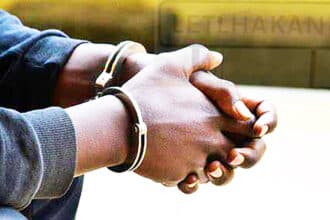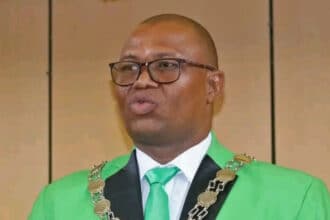Women politicians in and around Maun have expressed disappointment at the Commission of Enquiry on constitutional review’s failure to recommend a review of gender discriminative laws.
The concerns were registered during a recent fourth edition of Women Participation in Politics Academy in Maun by women politicians from different political parties, including ruling Botswana Democratic Party (BDP), Botswana National Front (BNF), Botswana Congress Party (BCP) and Botswana Patriotic Front (BPF) and Alliance for Progressives (AP).
“The women noted with disappointment that the final report of the Commission of Enquiry on the Constitutional Review, failed to make recommendations to review clauses in the Constitution that discriminate against women,” explained the trainer, Gender Links, in a press statement.
Gender Links further noted that while the Commission has received a well-researched submission from a consortium of women from Civil Society organisations and political parties, in the Recommendations, there was no articulation of need to change sections that, among others bar some Batswana from assuming the presidency.
“Are you aware that in Botswana only children fathered by Batswana men qualify for presidency? So women are asking for a level playing field because men can marry or father children with women who are originally not Batswana but because their fathers are Batswana they qualify for presidency, why discriminate against those children whose mothers are Batswana but their fathers are not Batswana or not originally Batswana,” asked Pamela Dube, a Gender Links consultant and a gender activist in an interview this week.
The women further contended that while sections 3 and 15 of the Constitution speak to fundamental rights for all and protection against all forms of discrimination, some clauses of section 33 take away those rights from women, and the youth.
“The section, speaks to the qualifications of the president. Constitutionally, the president of Botswana is a citizen aged 30 and above, yet an 18-year-old can vote, can have sex and have children but cannot be trusted with taking control of governance. They can go as far as vice presidency. Not fair is it?” added Martha Seema who says her children’s father is a Motswana but originally from Angola.
According to the women’s most affected groups are children in villages, which are closer to boarder posts.
Another issue of concern that they said hinders women from taking up leading roles in politics is the current electoral system used by the country, First Past the Post (FPTP) as compared to an inclusive Proportional representation system or a mix of both systems.
One area that was discussed at the same forum was an issue of women representative in political office, “With Botswana sitting at the bottom in the SADC region, in Women’s representation in Parliament, at 11% and 18% in Councils, the Academy recognised that the Electoral system of First Past the Post [FPTP) disadvantaged women. Lack of political funding for women and youth is another impediment that prevents them to fully participate in politics like their male counterparts.”
Gender based violence and sexual harassment on women and girls is one area that women representatives said they would like to see in the constitution. They want offenders to be imprisoned for such offences as these are common issues that affect women performance during election campaigns.
The women therefore call on politicians and aspiring politicians to make their concerns a political topic and lobby government to bring about inclusive electoral and constitutional reforms.







